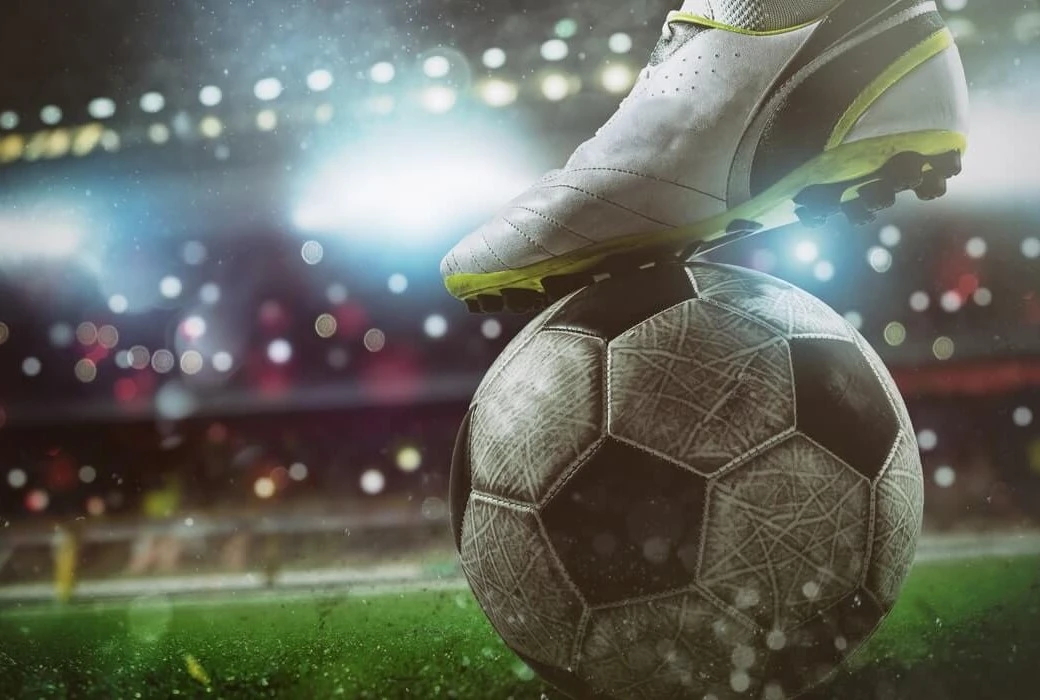Financial difficulties after professional sport.
The financial difficulties that professional athletes face after retiring from their chosen sports are unfortunately not uncommon.
Despite the perception of extravagant earnings during their playing careers, many athletes find themselves facing financial difficulties once their athletic careers come to an end.
In this article, we explore a real-life story of a professional athlete who struggled financially after retiring from their sport, along with ways in which they could have avoided this situation by managing their money better during their playing days.

Real-Life Story
One notable example is Mike Tyson, a former world heavyweight boxing champion. Over the course of his career, Tyson earned an estimated $400 million from fights and endorsements.
However, due to a series of financial missteps, including extravagant spending, legal battles, and a lack of proper financial management, Tyson filed for bankruptcy in 2003, just six years after retiring from boxing. Despite his immense earnings, he faced significant financial challenges and had to sell off assets to settle debts.
Mike Tyson’s extravagant lifestyle played a significant role in his financial difficulties. He had a penchant for spending lavishly on various items such as jewellery, cars, and even Bengal tigers. He purchased luxury items like diamond necklaces and a gold bathtub, which drained a substantial portion of his earnings.
Despite his immense earnings, Tyson reportedly did not manage his money well. His financial advisors and management failed to guide him properly, leading to poor investment decisions and overspending.
By 2004, Tyson had accumulated over $38.4 million in debt, and he eventually filed for bankruptcy. His mismanagement of money, legal troubles, extravagant lifestyle, and poor financial advice all contributed to his financial downfall. Despite facing these challenges, Tyson has since worked on improving his financial situation and has even ventured into new business endeavours.
Ways to avoid these financial difficulties
Professional athletes can take several steps during their playing careers to protect their financial well-being after retirement, and therefore avoid these types of situations.
Below is a few areas which athletes can focus on whilst in their high earning days.
Understand Income and Expenditure Early
Athletes should fully comprehend their income and expenses, including those associated with their sport and personal life. This awareness can help them control their spending habits and avoid accumulating unsustainable debts.
Manage Cash Flow is key when looking at income and expenditure. Athletes should treat their finances like a business and manage their cash flow wisely. This involves tracking income, expenses, taxes, and investments.
Creating and sticking to a budget can help control spending and ensure that money is allocated to essential needs before discretionary spending.
Engage in Tax Saving Strategies
Athletes should explore tax-saving strategies to maximize their earnings. These strategies may include contributing to retirement accounts, selecting a tax-friendly domicile, and understanding the impact of taxes on signing bonuses and endorsements.
We have covered many different tax efficient wrappers to invest into within other articles. These all offer unique ways to help make your estate as tax efficient as possible.
Tax planning should be an ongoing process. Regularly review your financial situation and tax strategy to ensure you’re utilising all available allowances and reliefs.
It’s important to note that the UK tax system can be complex, and individual circumstances can vary widely. Consulting with a financial advisor or tax professional can help you create a tailored tax-saving strategy based on your specific situation and goals.
Remember that tax laws and regulations can change over time, so staying informed about the latest updates and allowances is crucial to maximizing your tax-saving efforts.
Lastly, tax planning should ideally start at the beginning of each tax year to fully benefit from available allowances and opportunities. Waiting until the last minute can result in missed opportunities to reduce your tax bill.
Develop Good Saving Habits
Athletes should start saving early in their careers to establish a financial cushion for the future. The uncertain nature of sports careers, including potential injuries, makes having savings crucial.
This includes paying down debts, as high levels of debt can lead to financial instability post-retirement.
Differentiate between essential needs and discretionary wants. Prioritize spending on necessities and be cautious with impulse purchases. This helps you avoid unnecessary expenses and save more.
Establish an emergency fund to cover unexpected expenses like medical bills, car repairs, or job loss. Aim to save at least three to six months’ worth of living expenses in this fund. Having an emergency fund provides financial security and prevents the need to rely on credit in times of crisis.
Set up automatic transfers to your savings accounts, retirement funds, and investment accounts. This ensures consistent contributions without the temptation to spend the money before saving it. Automating savings makes it a routine and prevents you from forgetting to save.
Define clear financial goals for both the short and long term. This could include saving for emergencies, retirement, a down payment on a house, or a dream vacation. Specific goals make it easier to allocate your funds effectively.
Prepare for Unforeseen Circumstances
Athletes should be aware that injuries, poor performance, or unexpected life events can impact their income. Building an emergency fund to cover unexpected expenses and potential loss of income due to injury or other factors is crucial.
Athletes should also consider insuring themselves against potential career-ending injuries. Insurance policies specific to athletes can provide financial protection in case of unexpected events.
Avoid Get-Rich-Quick Schemes
Athletes should be cautious of schemes promising quick riches or aggressive tax strategies. Such schemes often lead to financial losses. Instead, they should adopt a solid, clear investment approach.
Athletes should approach investments with caution and focus on building a diversified portfolio that matches their risk tolerance and financial goals. They should seek professional advice from financial advisors who understand the unique financial challenges faced by athletes.
Build a Professional Adviser Team
Surrounding themselves with a team of trustworthy advisers, including lawyers, agents, tax advisers, and financial planners, can help athletes navigate financial decisions effectively and prevent potential issues.
Working with financial advisors experienced in sports-related finances is crucial. These advisors can provide specialized guidance tailored to athletes’ unique financial situations, including high income, lump sum payments, asset preservation, and investment growth.
Build Cash Reserves
Saving a portion of income consistently can help athletes build cash reserves for future investments and unexpected expenses. These reserves can provide financial stability and flexibility.
While it’s tempting to indulge in a lavish lifestyle, athletes should exercise restraint when it comes to spending. Avoiding excessive purchases, luxury items, and extravagant lifestyle choices can help preserve wealth for the long term.
Plan for Early Retirement and New Career
Athletes should plan for the possibility of early retirement due to injury or unforeseen circumstances. Having a plan for transitioning to a new career after retirement can help supplement their savings and investments.
Investing in education and skills development to prepare for a second career after sports is important. Acquiring new skills can open doors to opportunities beyond their playing careers.
Prioritise Financial Education
Athletes should invest time in learning about personal finance, wealth management, and investment strategies. This education can empower them to make informed financial decisions throughout their careers and beyond.
Conclusion
It’s important for athletes to recognise the potential pitfalls that can arise after retiring from their sport and to take proactive steps to ensure their financial well-being for the long term. By adhering to these guidelines and seeking professional financial advice, athletes can minimize the risk of struggling financially once their playing careers come to an end.
The financial struggles faced by professional athletes after retirement highlight the need for proper financial planning and management during their active careers. By following sound financial practices and seeking advice from experienced professionals, athletes can increase their chances of achieving long-term financial security and independence even after their sporting careers conclude.






